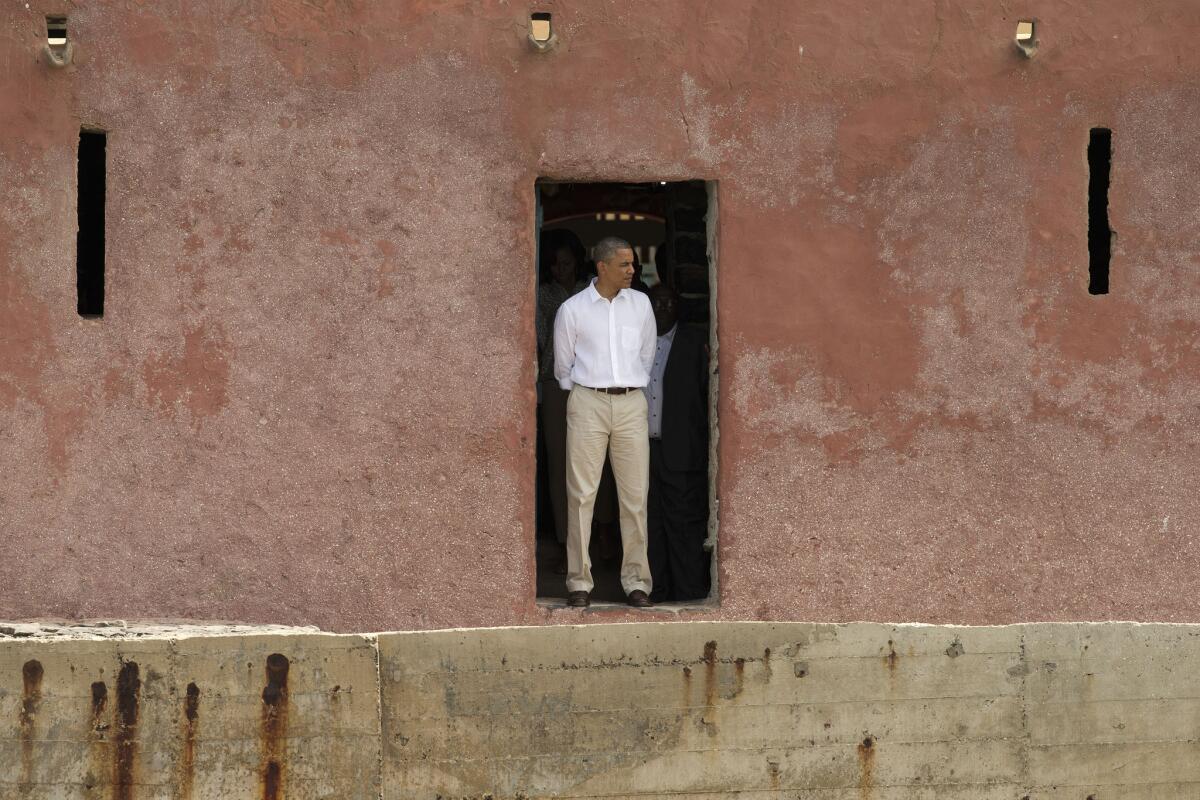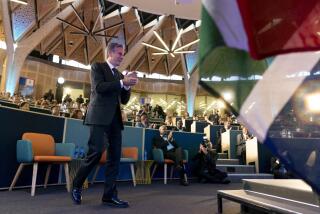Obama message to Africa

- Share via
President Obama’s trip through sub-Saharan Africa this week appropriately elevates the region’s prominence in the administration’s pantheon of foreign policy priorities. Obama is using the tour to promote African democracies, encourage trade and appeal to young people — and, importantly, to dispel the criticism that his presidency has been so preoccupied with other parts of the world that it has given Africa short shrift.
As he visits Senegal, South Africa and Tanzania, Obama has the opportunity to highlight some of the region’s more vexing social and geopolitical issues. In 38 sub-Saharan countries, including Senegal and Tanzania, homosexuality is a crime. This would be a good moment for Obama to note just how archaic those laws are and how they promulgate violence and discrimination. When asked about this issue at a news conference in Senegal, he said the law should treat everyone equally. He should be more forceful when he gets to Tanzania.
Among the region’s military difficulties is a continuing conflict in the Democratic Republic of Congo. Although Obama will not visit that country, former Sen. Russ Feingold (D-Wis.) has been appointed by Secretary of State John F. Kerry as a special envoy to the Great Lakes region. The goal is not just to guide policy but to help speed up negotiations between the Congolese government and the M23 rebels who intermittently battle government forces. Feingold’s appointment follows the United Nations’ dispatch of former Irish President Mary Robinson as a special envoy and its deployment of an “intervention brigade” of African troops to patrol eastern Congo.
VIDEO: A growing hunger - Drought and conflict leave parts of africa in misery
Meanwhile, Feingold should continue to press Rwanda to sever ties with the rebels. He should firmly back the Congolese government’s negotiating stand that no rebels charged with human rights violations be allowed to reintegrate into the military, as they had been.
Feingold and Great Lakes officials must also turn their attention to the women in this region who have become collateral damage — raped and beaten by both rebel forces and government soldiers. At the least, they should consult women and community activists as they broker an agreement between the Congolese government and the rebels. This process should be about ensuring safety as well as peace. The president is traveling with his wife and daughters, giving special poignancy to the plight of women in much of Africa and offering the first lady an opportunity to speak out against violence.
The continent’s many problems can engender despair. Obama’s trip suggests an alternative: Patient attention and support from the United States can help bring an end to conflicts and destructive social policies.
More to Read
A cure for the common opinion
Get thought-provoking perspectives with our weekly newsletter.
You may occasionally receive promotional content from the Los Angeles Times.









